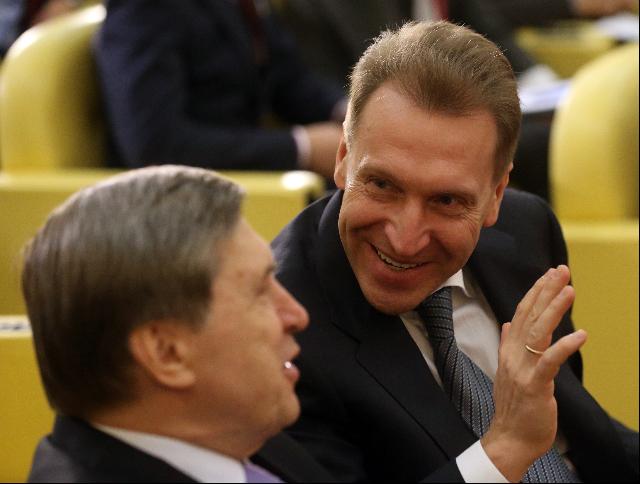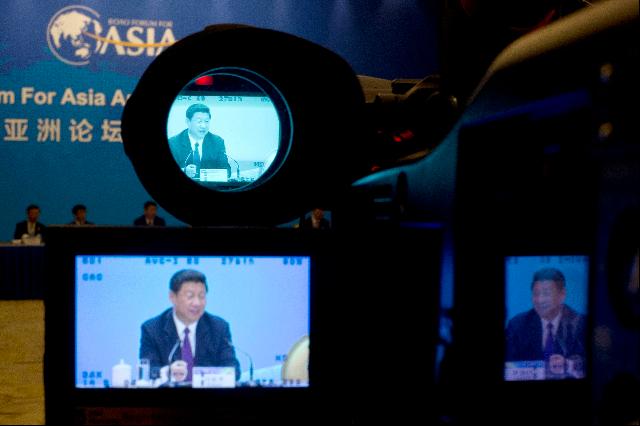
Russia Joins China's Asian Infrastructure Bank, But Doubts Its Power Against IMF
Russia finally decided to join the Beijing led Asian Infrastructure Investment Bank (AIIB) this weekend, but top officials don’t see it replacing the Bretton Woods institutions led by the World Bank.
Russian Deputy Prime Minister Igor Shuvalov said Saturday that Russia would join the roughly 23 countries that have already signed on as members of the $100 billion development bank. Shuvalov, whose government has no love affair with the west, said that AIIB was no replacement for the World Bank and International Monetary Fund.
“I come across comments that somebody opposes the creation of this bank because they see it as an alternative to the World Bank and as new emerging financial system which can undermine the IMF . We do not even consider such a scenario,” Shuvalov told reporters at the Boao Forum for Asia, which ends today in Hainan province, southern China.

Russian First Deputy Prime Minister Igor Shuvalov (L) and Presidential Advisor Yuri Ushakov (L) chat about regional development in Astana, Kazakhstan. Russian President Vladimir Putin launched the Eurasian Economic Union this year, and counts Kazakhstan as a member. (Photo by Sasha Mordovets/Getty Images)
The AIIB initiative came out of Beijing and was introduced to 21 charter members, all southeast Asian, back in October. The idea behind the bank is to help develop the regions woefully lacking in public infrastructure. The World Bank also invests in infrastructure projects. It currently is spending upwards of $500 million on a highway project in northern India. But as China moves from becoming the world’s factory and tries to become a global innovator and high-tech producer, it will increasingly turn towards the lower income nations on its borders to be its factories. In fact, India’s new leader Narendra Modi is trying to entice China to build assembly lines in his country. To build factories requires infrastructure to get goods to market. The AIIB is, in many ways, funding Chinese manufacturing in Asia’s lower income nations.
For Russia, the AIIB is just as much an important part of developing its oil and gas infrastructure as it is political.
China has already announced millions in investments in joint venture deals with Russia’s state run gas giant Gazprom. These were deals that until recently were signed with western oil firms, namely BP and ExxonMobil. Exxon’s deal with Rosneft has been put on hold due to Washington sanctions against Gazprom.
With relations on ice between Moscow and Washington, Russia has quickly turned to China.
Shuvalov said Russia is interested in developing the new “silk road” in north central Asia along with the Chinese. Part of the historic Silk Road cuts right through the bread basket of Russia’s dwindling sphere of influence in ex-Soviet states like Kazakhstan and Aremenia. Armenia is part of Russia’s fledgling Eurasian Economic Union, an euro-esque trade bloc that Vladimir Putin would like to see run by a single currency some day.
However, given China’s economic power and global reach, any common currency along a Silk Road trade route would be renmimbi before rubles. Russia wants to get its alliances straight as its traditional economic partner, Europe, is also sanctioning Russia due to its involvement in the separatist movements of eastern Ukraine.

Chinese President Xi Jinping is shown on screens of a television camera during his meeting with representatives of entrepreneurs at the annual Boao Forum. Russia also said it wants to be part of China’s new Silk Road initiative to develop countries along Russia’s southern border. (Photo by Alexander F. Yuan/AP)
CONTINUE READING.....
